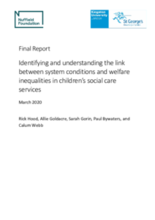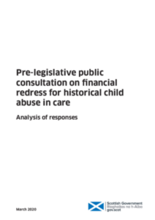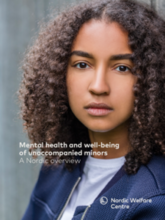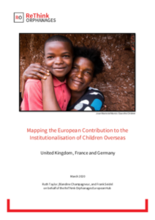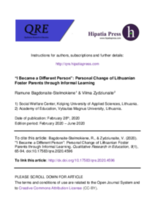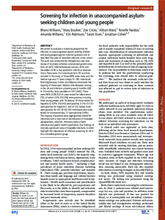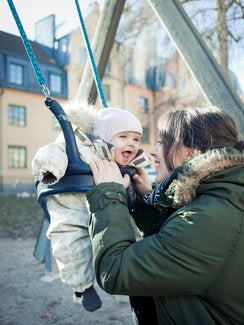

Displaying 511 - 520 of 1585
This report presents the findings from a study of the organisational and institutional context of statutory children’s social care (CSC) in England and its contribution to inequalities in provision.
This report presents findings from an independent analysis of the responses to a public consultation issued by the Scottish Government in September 2019, which invited views on its specific proposals for the establishment of a statutory financial redress scheme for victims / survivors of abuse in care.
This report surveys different aspects of health of unaccompanied minors who have arrived in the Nordic region.
Significant anecdotal evidence suggests that other countries across Europe also make a considerable contribution to the supply chain of people, money and resources that continue to sustain and foster the orphanage industry worldwide. This report seeks to map the contribution of the three countries in Europe with the largest volunteer travel markets: The United Kingdom, Germany and France.
Family for Every Child is seeking a flexible and enthusiastic Fundraising Officer with excellent writing skills, and experience of raising funds from trusts and foundations.
This article presents the findings of the qualitative study on the personal change of foster parents carried out in Lithuania, which reveals the subjective experience of informal learning of the foster parents fostering a non-relative child.
This study aims to explore how young migrants in kinship care in a Swedish suburb describe what different places mean to them and what these descriptions can tell us about their sense of belonging.
This article presents a ten-year service evaluation of the Adolescent Multi-Agency Specialist Service (AMASS), an edge of care service based within Islington Children’s Services.
The authors of this study aimed to evaluate a screening programme for infection in unaccompanied asylum seeking children and young people against national guidance and to describe the rates of identified infection in the cohort.
There is limited understanding related to the role of community‐based centres in reducing social exclusion and isolation, so the aim of this research was to explore the role one family centre had in improving social inclusion in a deprived community in Glasgow, Scotland.

